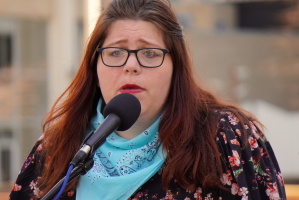An Ironic Ecumenism: The Global War on Christians (Part 2)
If I asked you to name the country that has witnessed the single greatest outburst of anti-Christian violence in recent years, you'd probably guess somewhere like North Korea or an Islamic country such as Egypt.
You'd be wrong. The answer is India. As John L. Allen tells us in his new book, "The Global War on Christians," in 2008, "a series of riots [in the state of Orissa] ended with as many as five hundred Christians killed." Even more shocking than the number of those killed was the way they were killed: "many were hacked to death by machete-wielding Hindu radicals."
By the time the violence ended, "thousands more were injured, and at least fifty thousand were left homeless."
Unlike North Korea or Saudi Arabia, the perpetrators were not government officials but private individuals and groups, acting with the implicit and sometimes explicit approval of local officials.
Thus, after a nun was "raped, marched naked through the streets and beaten," local "police sympathetic to the radicals discouraged the nun from filing a report and declined to arrest her attackers."
This was not the first or even the greatest example of violence perpetrated by Hindu radicals against an Indian religious minority. Similar violence in the state of Gujarat in 2002 claimed the lives of an estimated 2,000 Muslims.
Then, as in 2008, local radicals acted with the connivance of local and state officials. One of those officials, Chief Minister Narendra Modi, has even been barred from visiting the United States because of his alleged role in the pogrom.
The killings in India illustrate an important aspect of the global war on Christians: much, if not most, of the persecution comes at the hands of non-state actors. India is officially a secular democracy, which in India means "non-sectarian," whose constitution guarantees religious freedom.
But these guarantees are only as good as the willingness of state and local officials to enforce them. Given India's decentralized federal structure, Delhi has little power to force local governments to protect religious minorities.
And given the rise of radical Hinduism, known as Hindutva, this kind of protection is more necessary than ever. According to one survey Allen cites, recorded "incidents of violence against Christians" rose from an average of 38 per year between 1964 and 1996 to 170 in 2011.
And it's not only India. Neighboring Sri Lanka has also "seen a spike in anti-Christian violence in recent years." There, the perpetrators are Buddhists, including monks. The idea of a rampaging Buddhist monk may seem incongruous to westerners, but alas, that's the reality. Monks broke into an Assembly of God church and posted notices reading, "any form of Christian worship in this place is completely prohibited." Another pastor was forced to leave the area after her daughter was threatened.
On the other side of the subcontinent, Pakistani Christians live under constant threat from their Muslim neighbors. It takes very little to incite anti-Christian violence. Even drinking water at the wrong well can and has done the trick.
For some Hindus, Buddhists, and Muslims, persecuting Christians is an ironically ecumenical pursuit, especially if governments are willing to look the other way.
Our suffering brethren only have us to see their plight and tell their story, which is why Allen's book is so important.





























